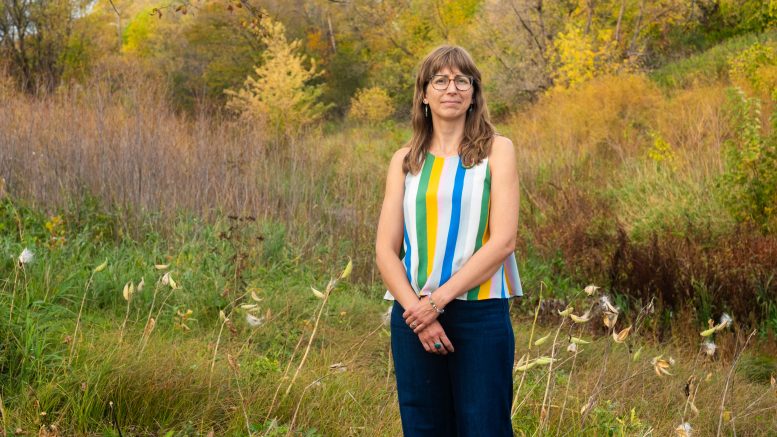The U of M Centre for Creative Writing and Oral Culture has recently welcomed Melanie Dennis Unrau as its writer-in-residence for fall 2025. A poet, scholar and climate activist, Unrau explores the unique intersections of the environment and literature.
As the writer-in-residence, Unrau is available to meet with students, staff, faculty and community members who want to discuss their writing. In addition, she hosts workshops on campus with activities ranging from poster-making for rallies to writing poetry.
“I’d like to invite as many people as possible to come up to the workshops. You don’t have to sign up in advance [or] attend all of them,” Unrau said. She added in each series, there will be one workshop where participants may bring a poem of their own to be workshopped and added to a chapbook. The chapbook will be launched on Dec. 6 at an event where participants can read their poems aloud.
Aside from workshopping, Unrau’s other duty is to write. Currently, she is writing a chapbook related to Goose, her latest poetry book launching on Oct. 11 at McNally Robinson Booksellers. In Goose, Unrau examines literary works about the Athabasca region, extraction and the relationship between humans and the environment.
Unrau is a U of M alumna who completed a PhD in oil worker poetry at the department of english, film, theatre and media. She has worked as a postdoctoral researcher at Columbia University and the University of Regina since 2019, though her career has recently taken a more artistic turn.
“I’m transitioning toward focusing on my creative practice and moving away from the career path of being a professor in a university, so I’m excited this fall to be a writer-in-residence at the university,” said Unrau.
Poetry can be a catalyst for empowerment and social change — think about “Still I Rise” by Maya Angelou or Langston Hughes’ “Kids Who Die,” for example. However, Unrau mentioned the value of poetry in activism might not be what is expected.
“I had a [professor], Jeff Derksen at Simon Fraser University, who said we can’t essentialize about poetry, by which I think he meant we can’t make all these huge claims about what poetry can do,” she said.
“I don’t really think poetry in itself is an action if we want to talk about political activism, but I do think that poetry is a way that we can connect with other people, a way that we can express emotions and put into language ideas that are forming but not yet totally clear in our minds.”
For instance, Unrau’s doctoral dissertation has since been published as a book, The Rough Poets: Reading Oil-Worker Poetry.
“The Rough Poets is sort of thinking about what environmentalists and oil workers have in common and how we might connect, and that poetry might be a place for connecting even around some of these big culture wars topics that have become so divisive,” said Unrau.
“I see poetry as a mode for solidarity, a way of coming together in a really difficult time and looking for ways to live together,” she said. “I’m interested in social justice and wanting to use language and poetry to articulate visions for a more just world.”
Melanie Dennis Unrau can be reached at [email protected] for consultations. For future workshops and events at the Centre for Creative Writing and Oral Culture, visit umanitoba.ca/arts/centre-creative-writing-and-oral-culture.


